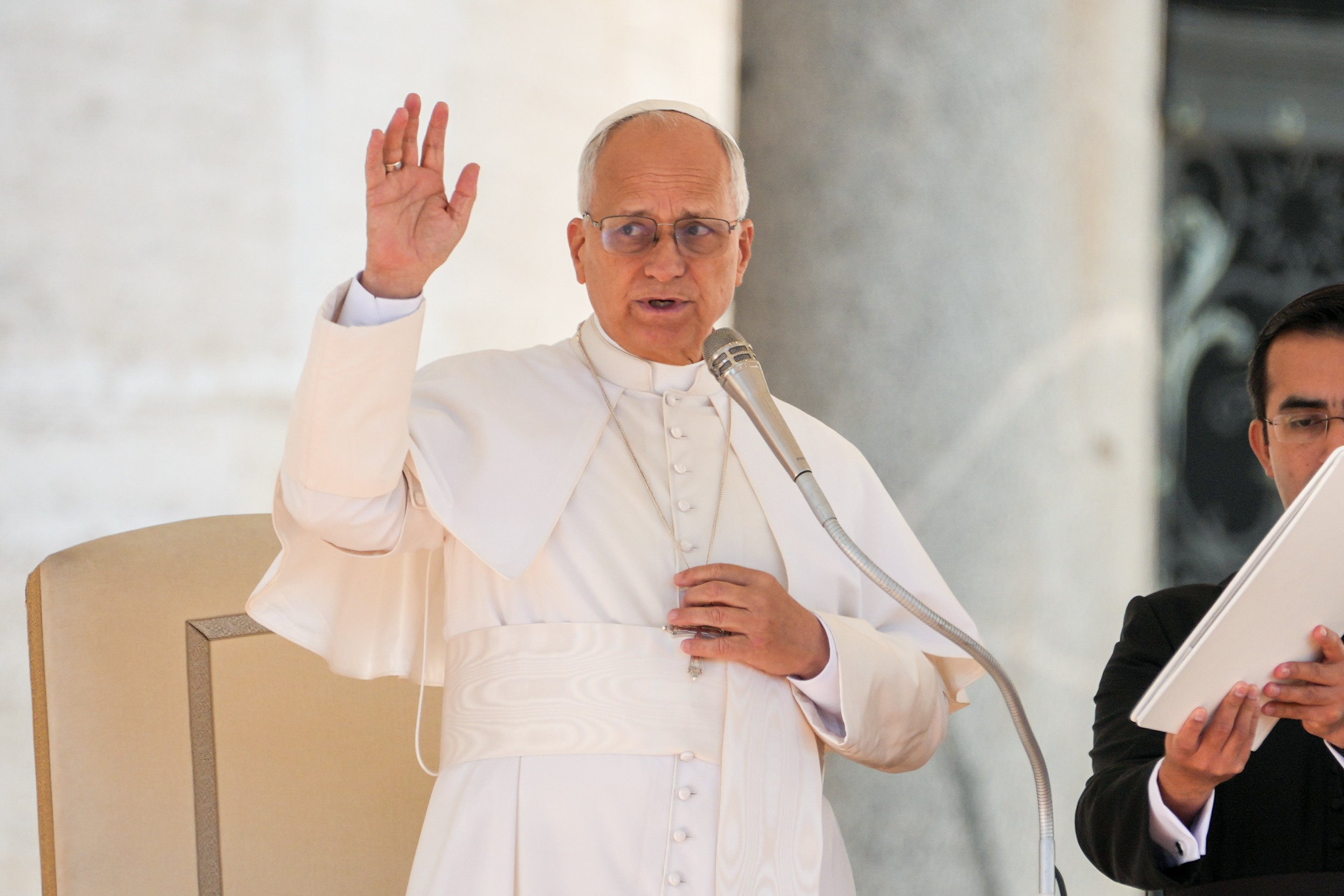April 6, 2018 at 1:53 p.m.
WORD OF FAITH
God's followers transfigured, too
'If God is for us, who is against us? He who did not withhold His own Son, but gave Him up for all of us, will He not with Him also give us everything else?' - Romans 8:31-32
If you're interested in life - especially life right here and now - you'll gain much from listening to Sunday's three readings. But that will only happen when we hear Sunday's Genesis (22:1-2,9a,10-13,15-18) passage against the background in which it was originally composed. If we don't, some of us might think Yahweh is sadistic.
This particular passage was written in the eighth century BC by the Elohistic author of Genesis - a writer who lived in the country of Israel, the Holy Land's northern kingdom. Governed by a succession of bad kings, many of Israel's residents frequently copied the religious practices of their pagan neighbors, especially child sacrifice.
With no belief in an afterlife as we know it, it was commonly accepted that if you generously offered your first-born male child to the local fertility god, that god would generously see to it that you had many more (especially male) children.
Having lots of children meant that when this life ended, you'd live on forever in the memory of those descendants. If you refused to offer that first-born male, you were playing Russian roulette with your family's future.
Won't do it
Of course, faithful followers of Yahweh refused to kill their children, often enduring the criticism of their pagan neighbors that they weren't as dedicated to their God as non-Jews were to their gods.
Writing from a prophetic stance on this issue, the Elohistic author creates a narrative in which Abraham, the ancestor of all Jews, is depicted as willing to sacrifice his first-born, Isaac, if that's what Yahweh demands.
The actual biblical narrative wreaks havoc with our emotions. Abraham not only has three days to think it over, but also engages in a heart-wrenching conversation with Isaac as they're climbing up to the sacrificial site.
Fortunately, we all know the "happy" ending: The messenger/Yahweh intervenes just in time to stop the holocaust, substituting a ram for the boy. All's well that ends well.
But the sacred author's message is clear: As in all anti-fertility narratives, faithful Jews were expected to go against the God-controlling practices dominating the religious lives of their pagan neighbors. These misguided folk believed that if they said a certain prayer so many times, held their hands in a specific way or performed actions which attracted the attention of the gods - for instance, boiling a baby goat to death in its mother's milk - the gods would be forced to grant whatever they prayed for.
Life-givers
True to their name, Israelites wrestled with their God; they didn't try to control God. They received life by preserving life, not by taking it. Their relationship with Yahweh and one another was unique among their contemporaries.
In a similar way, Jesus' earliest followers also stood out among their contemporaries on the issue of life: They didn't take life; they gave life.
Though such constant self-giving would appear to diminish the quality of one's life, Paul (Romans 8:31b-34) assures the Christian community in Rome that their mentor, Jesus, actually experienced a completely new life when He gave His life for us.
No wonder when Mark includes a transfiguration story in his Gospel (Mark 9:2-10): He's always interested in pointing out the uniqueness of Jesus and His followers. The historical Jesus' faith not only transfigured Him in the sight of His followers, it also transfigured them.
It's significant that the evangelist depicts the transfigured Jesus standing between Moses and Elijah: Together, the pair symbolize the "law and the prophets" - one of the biblical names for the Bible.
Mark is graphically displaying his conviction that, by imitating Jesus, we're doing what our sacred authors want their readers to do: to look at life from a completely unique perspective. If we're able to pull that off, then we'll actually transfigure life itself. [[In-content Ad]]
SOCIAL MEDIA
OSV NEWS
- As deal to end shutdown advances, Catholic groups urge action on health insurance costs
- Texans vote overwhelmingly to enshrine parental rights in state constitution
- Supreme Court declines Kim Davis case seeking to overturn same-sex marriage ruling
- ‘Do you love Jesus more than your political opinion?’: Bishop Tyson says the church faces a test
- Vatican says Swiss Guards investigating alleged antisemitic gesture
- Bishop: Survival of Christian communities in Nigeria depends on security, justice
- Pope asks for extra care when using AI in medicine
- Pope holds long meeting with Belgian abuse survivors
- Delegation of top prelates, lay activists gives Brazil church strong presence at COP30
- Pope offers prayers for the Philippines and for peacemakers







Comments:
You must login to comment.